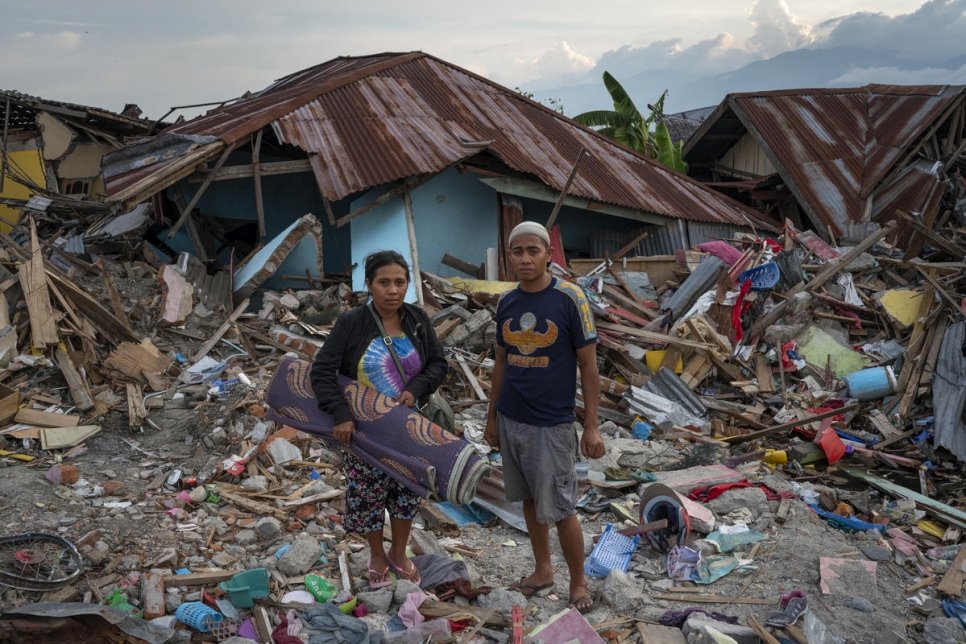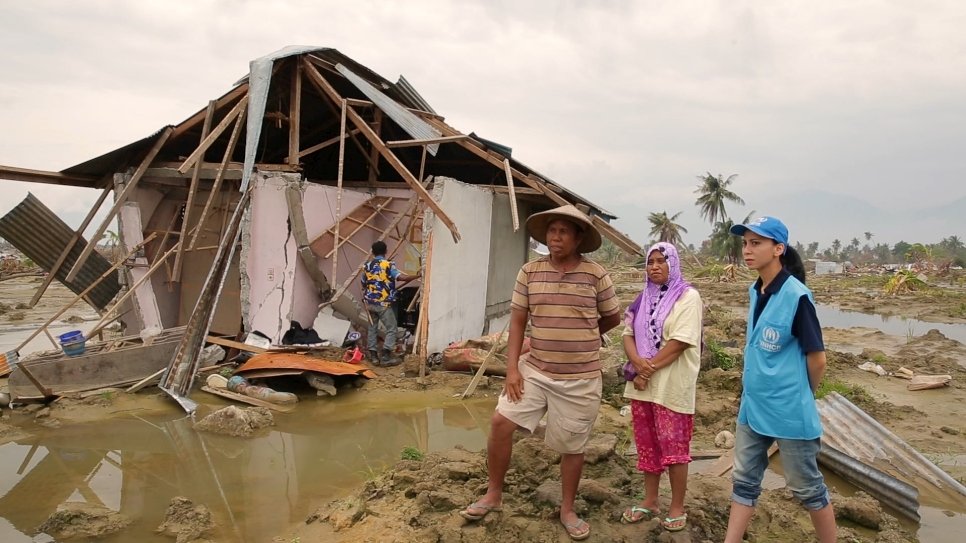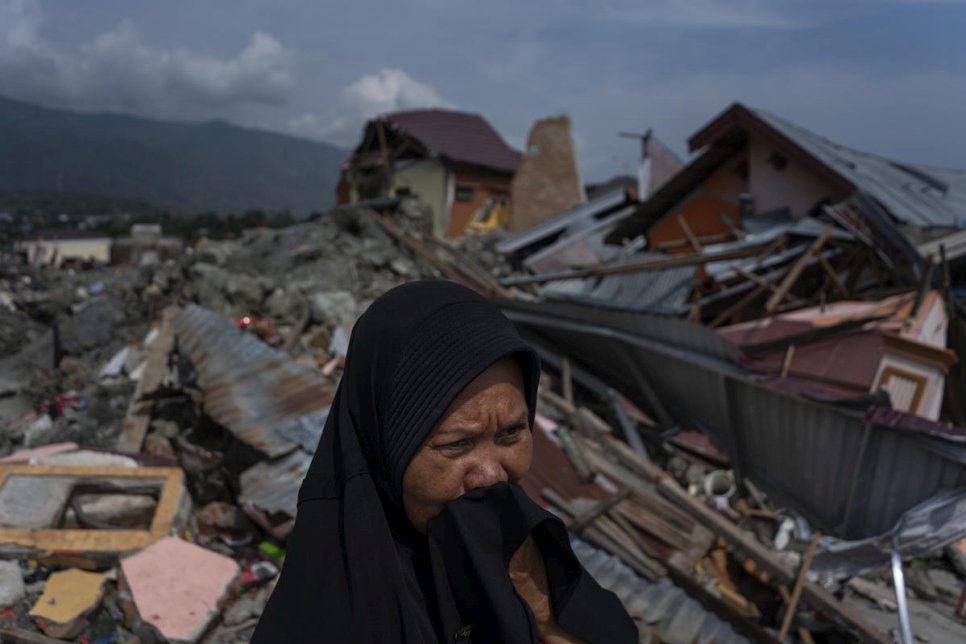Airlift delivers shelter for Indonesia quake survivors
UNHCR flies tents to Balikpapan for distribution to survivors of the devastating earthquake and tsunami that left 80,000 out of their homes.

Earthquake survivor Mega (left) and her husband stand in the wreckage of her childhood home in Palu, Indonesia. © UNHCR/Fauzan Ijazah
PALU, Indonesia – Thirty-one-year-old earthquake survivor Mega and her husband trawl through the wreckage of her childhood home in Palu.
"I came to my father's house to salvage things to use in our temporary shelter,” she says. "The only thing I found was a mat. The house I grew up in is destroyed.”
Mega is among thousands of residents of Palu, a city on Indonesia’s Sulawesi Island, who have nowhere to live after a devastating earthquake and tsunami struck the coast of Sulawesi on 28 September, killing some 2,000 people.
To help them, UNHCR, the UN Refugee Agency, this morning delivered 435 emergency tents to Balikpapan, Indonesia, for onward distribution. Further aid, including more emergency tents, sleeping mats, mosquito nets and solar lamps, is set to be delivered in the coming weeks.

UNHCR airlifts emergency tents for Indonesia earthquake victims (Mitra Salima Suryono, producer / Dennis Angga Hermawan, Agustian Tri Yuanto, videographers / Marion Viguier, editor)
An official assessment from the Indonesia National Agency for Disaster Management estimates that the quake and subsequent tsunami damaged around 68,000 houses, making 80,000 people homeless.
The tents were handed to Indonesian authorities in Balikpapan who delivered them to neighbouring Sulawesi Island. They will be distributed there by UNHCR’s partners on the ground, Indonesia Red Cross and Yayasan Kemanusiaan Muslim Indonesia, providing shelter to around 6,500 people in greatest need.
"The only thing I found was a mat. The house I grew up in is destroyed."
Earlier this week, a UNHCR team travelled to Palu, which is one of the most affected areas in Central Sulawesi, to coordinate with local government counterparts and partners, and make advanced preparations.
Our staff described the effects of the earthquake and tsunami as “beyond imagination” and “devastating.” Communities have seen their houses, schools and hospitals reduced to rubble. Entire villages have been decimated.
In Petobo and Balaroa, the twin disasters churned large areas into mud. Many people have not only lost their homes, but even the land on which they once stood.
Among those inspecting the destruction in Balaroa was survivor Rosmini. "I have been so scared,” she said. “Today is the first day I’m able to visit and see my relatives' houses."
Many of the survivors are extremely distressed but resilient, with people helping each other where they can. One woman said that she felt “lucky” that she had only lost her father, as her husband and son had survived.
Another woman told our staff how she returned to her family home to see what possessions she could salvage but that everything was destroyed. Others have reported that they feel too traumatized by the earthquake and tsunami to face returning to what’s left of their homes.
You can donate to UNHCR’s Indonesia disaster relief here.

